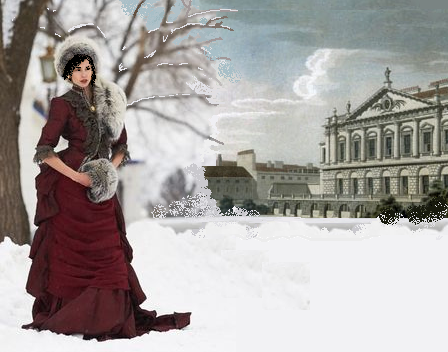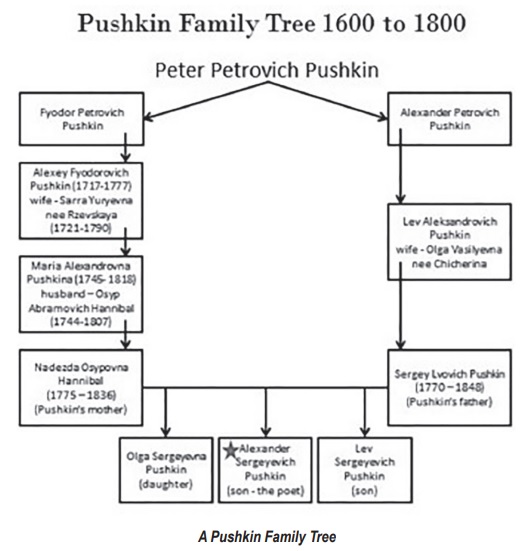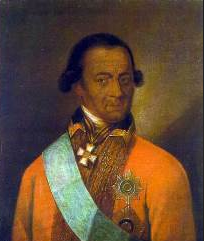 |
| Pushkin saw Natalya as he rode into Moscow, escorted by the tsar’s guards who were executing a summons for the poet. Upon becoming Pushkin’s wife, Natalya loved the city life with all the ballroom dancing and seasonal events. She was the delight of every ball and often danced with the tsar. …from the book: “Natalya was Pushkin’s prize. Her voice was low and as soft as a dove’s coo, and her hair was like the darkest raven waters catching every glimmer of light, just like her mood. Her beauty promised everything, yet she gave nothing. She was known as “Pushkin’s pride and pleasure,” yet others referred to her as the “adorably flirtatious Natalya.” |
 |
| Pushkin was a nobleman and as a nobleman he had the choice to work in the tsar’s government as a clerk or join the military. Pushkin’s father’s name was Sergey Lvovich Pushkin and his son was the poet; Alexander Sergeyevich Pushkin …from the book: “As for the paternal side of the Pushkin name, in the early days it was regarded highly and had for six hundred years been a royal part of Russian history. The Pushkin clan initially began with Radsha and was included in Ivan the Terrible’s famous pedigree book listing the most noble families of early Russia. Radsha was a legendary highbred Prussian, presumably a “very illustrious, noble, and honorable man” who served Ivan the Terrible in the thirteenth century. A descendant of Radsha was Grigori, who was the first to bear the name Pushka, which through the hundreds of years became Pushkin.” |
 |
| Pushkin’s great-grandfather, on his mother’s side of the family, was a prince from Ethiopia. Peter the Great had discovered the prince while sailing the Mediterranean. …from the book: “Pushkin soon began a project involving prose, a new historical romance entitled The Negro of Peter the Great. It would be a story based on his own great-grandfather Abram Gannibal and how he came to be captured in Ethiopia at the age of eight to become a gift for Peter the Great. It is a story of survival and attaining grace, as young Abram would eventually become a much revered Russian general of artillery in the Navy.” |